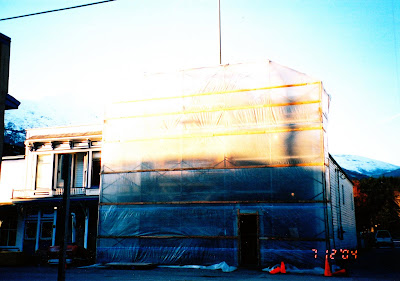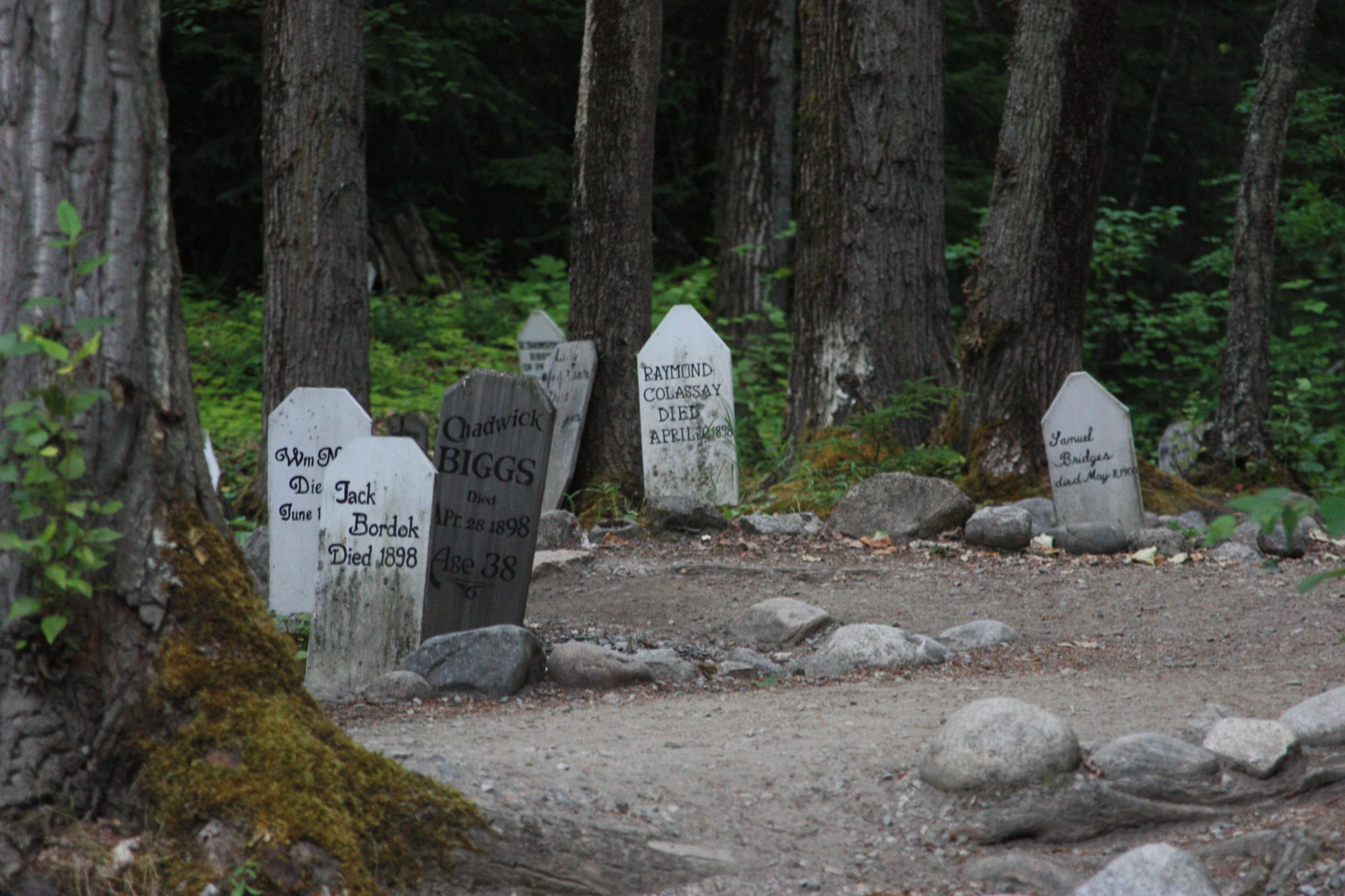Here is a nice photo of a tug of war on Broadway around the turn of the century.
Allen Brothers Hardware
George Griffith Allen and his brother Robert Cochran Allen opened a hardware store in Skagway in 1897. George was a widower, but Robert was married to Ida May and had 4 daughters: Dorothy and Hazel the twins, Irene, and Permelia. The Allens moved back to Snohomish or Portland around the turn of the century and Robert died in 1905 there.
George G. Allen died on April 15, 1936 in Los Angeles.
Another George Allen died on the Princess Sophia in 1918, but he was George M. Allen, an editor who ran the Daily Klondike Nugget in Dawson.
Believe it or not there were even two more George Allens, one was the son of a U.S. Senator from Washington who got into some trouble in Skagway and then went to Nome where he was in an armed robbery. The last George A. Allen was a NWMP Mountie in 1897 stationed at Log Cabin.
Seen above is the G.G. Allen hardware store in Skagway in 1897 or ’98.
Hunt, NPS p.39; 1880 Portland census; 1900 Skagway census; familysearch; Washington records; Klondike Stampeder Reg by Pennington; Cohen.
AB Hall renovation

Locals will remember the winter that Jeff Mull took down the facade of the front of AB Hall and then replaced the back board and then cleaned and replaced the driftwood front. This photo was taken of the temporary structure and plastic sheeting which helped to keep him out of the weather during the work. The wood was coated with Cabot’s bleaching oil and so when the project was completed it all looked lighter than before.
White Pass Construction

On this day, May 27, 1898, after years of planning and financial consideration by British investors, White Pass & Yukon Route started building the railroad over the White Pass to Whitehorse. I don’t remember ever seeing a ceremony to commemorate the start on that day, I think they just started. They encountered some difficulty in building the line along the base of the cliff where it is located now, because local landowners and speculators had bought up the land thinking they would cash in. So two weeks later, despite local objections, 500 workers started laying the track down Broadway at night and in the morning of June 15, 1898 the town awoke to find the deed was already done.
This demonstrated two things, that Michael J. Heney was a doer, that local objections were of no concern to him, and second that with enough manpower and money, White Pass was above any minor obstacles. These characteristics would later become evident in their dealings with accidents and local problems (Soapy?).
